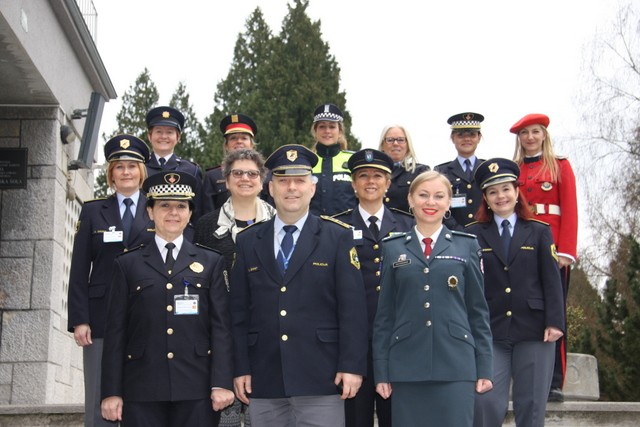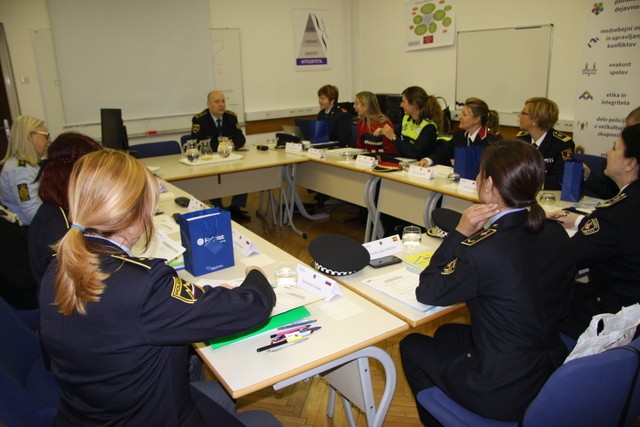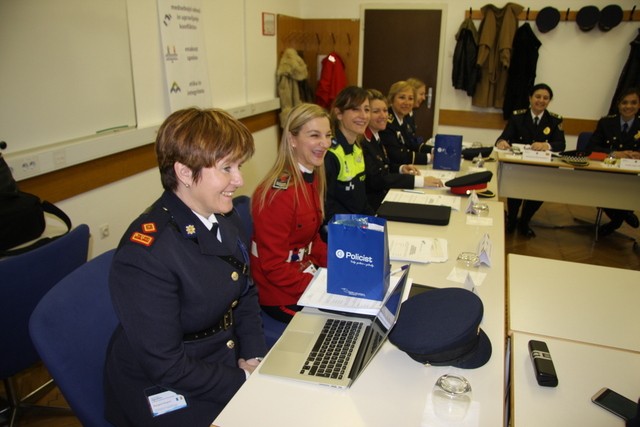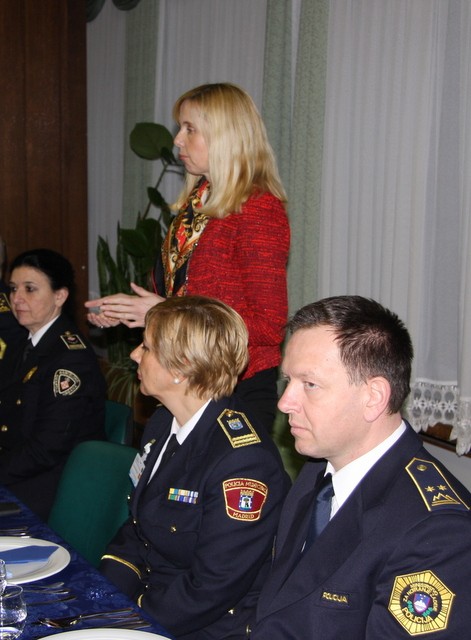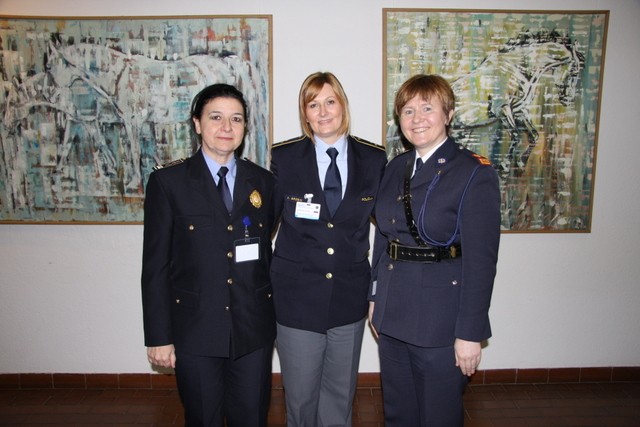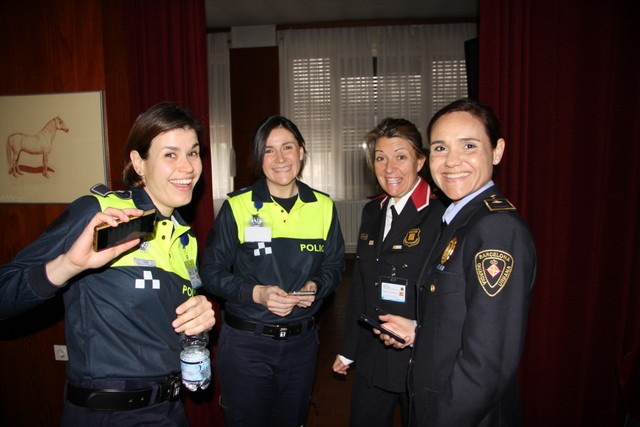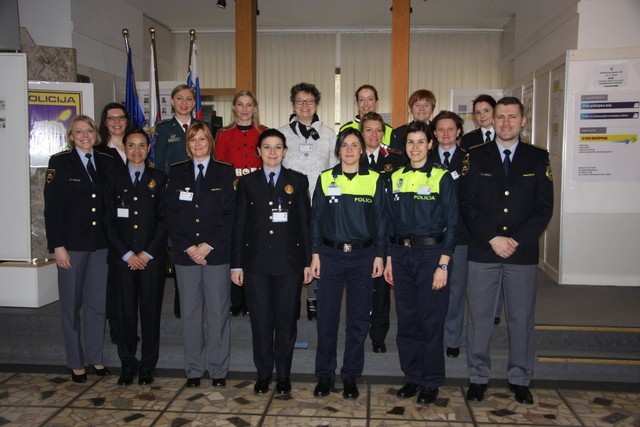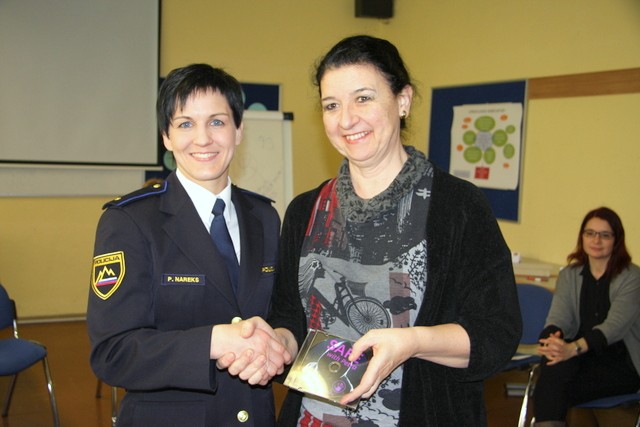On 14 March 2016, marking the 27th anniversary of the European Network of Policewomen (ENP), a special course was held for policewomen from six countries at the Police Academy, Ljubljana, Slovenia. The 20 participants came from Ireland, Denmark, Lithuania, Germany, Spain and Slovenia.
The participants were welcomed by Director of Police Academy, Danijel Žibert
The ENP unites female officers serving the law enforcement. Through co-operation and networking the organisation strives to facilitate positive changes in regard to gender mainstreaming, management of diversity and optimising the position of women. Even though a lot has changed for the better emancipation-wise, there is still progress to be made in raising awareness of the significance of women's role in police organisations.
The ENP was founded on 23rd March 1989 at the International Conference for Policewomen held in the Netherlands. The founders envisioned the creation of a professional network that could provide an information channel through which both policewomen could make constructive alliances in the field of equal opportunities within police organisation across Europe.
After the meeting, the participants were addressed by Deputy Director General of the Police Ms Tatjana Bobnar who said that "it would be impossible to imagine Slovenia's police without female officers. The recent migration-related events have shown how important it is to have both genders serving the force. Slovenian policewomen are engaged in all policing domains. The figures show that the majority of policewoman serve at the local level where they perform all policing tasks. Since 1973 when Slovenia's first woman took up her duties as a police officer, Slovenia's police organisation has seen a gradual rise in their numbers. Female officers already make up over 16 % of all employees."
Slovenia nominated a female representative to the ENP in 2005, and a deputy in 2009. In 2015 Slovenia consolidated its membership in the ENP by submitting an application signed by Director General of the Police, thus committing itself to cooperation and fulfilment of obligations.
From left to right: Montserrat Pina Martinez, ENP President, representative of the Spanish law enforcement, Apolonija Grobin, Head of ENP Slovenia, and Margaret Nugent, representative of the Irish police.
"There are new challenges ahead. Meetings like this one definitely bring progress. I hope you will exchange a great deal of experience and good practice and make some friendly ties which are ever so important these days," stressed the Deputy in her speech introducing the social skills course.
The participants attended a multi-day social skills and tools course. Martina Stergar and Stella Straus introduced the work of the Research and Social Skills Centre of the Police and the way gender equality is addressed within Slovenia's police organisation. The participants were given the opportunity to participate in interactive practical sessions of social content. Stanislava Zupan introduced the project Blazinice tolažbe (Security blankets).
Dr Džemal Durić, an NLP (a neuro linguistic programmer) coach, held a most interesting presentation on coaching and leadership, focusing on the qualities of a good leader and their knowledge, anticipation of a situation and distancing from it before making a decision. The participants were enthusiastic about top-class tools introduced by the lecturer and learned how to use them in an improved personal and mental response. The officers thought these techniques are useful in professional, working and private environments, and should be communicated across police ranks.
On the last day, Snežna Krek, a psychologist, held a lecture on psychosocial assistance and the role of psychologists and police consultants. The participants introduced the systems and practice in their national institutions. Internationally, psychological assistance has been gaining ground and Slovenia have been successfully keeping abreast of developments alongside European police organisations. Naturally, the situations dealt with by psychologists cannot be foreseen or prepared for in advance. Yet, much can be done if we know how to use a responsible approach and empathy, if we know how to listen and understand. This is why the role of a police consultant is so recognised, desirable and valued.
The attendants were given a tour of the Slovenian Police Museum and met Petra Nareks, a top judo athlete, who also serves the police.
This international event was a wonderful challenge for Slovenia's police as it strengthened their commitment to be part of a very important international organisation and showed we can and we know how to manage diversity.


